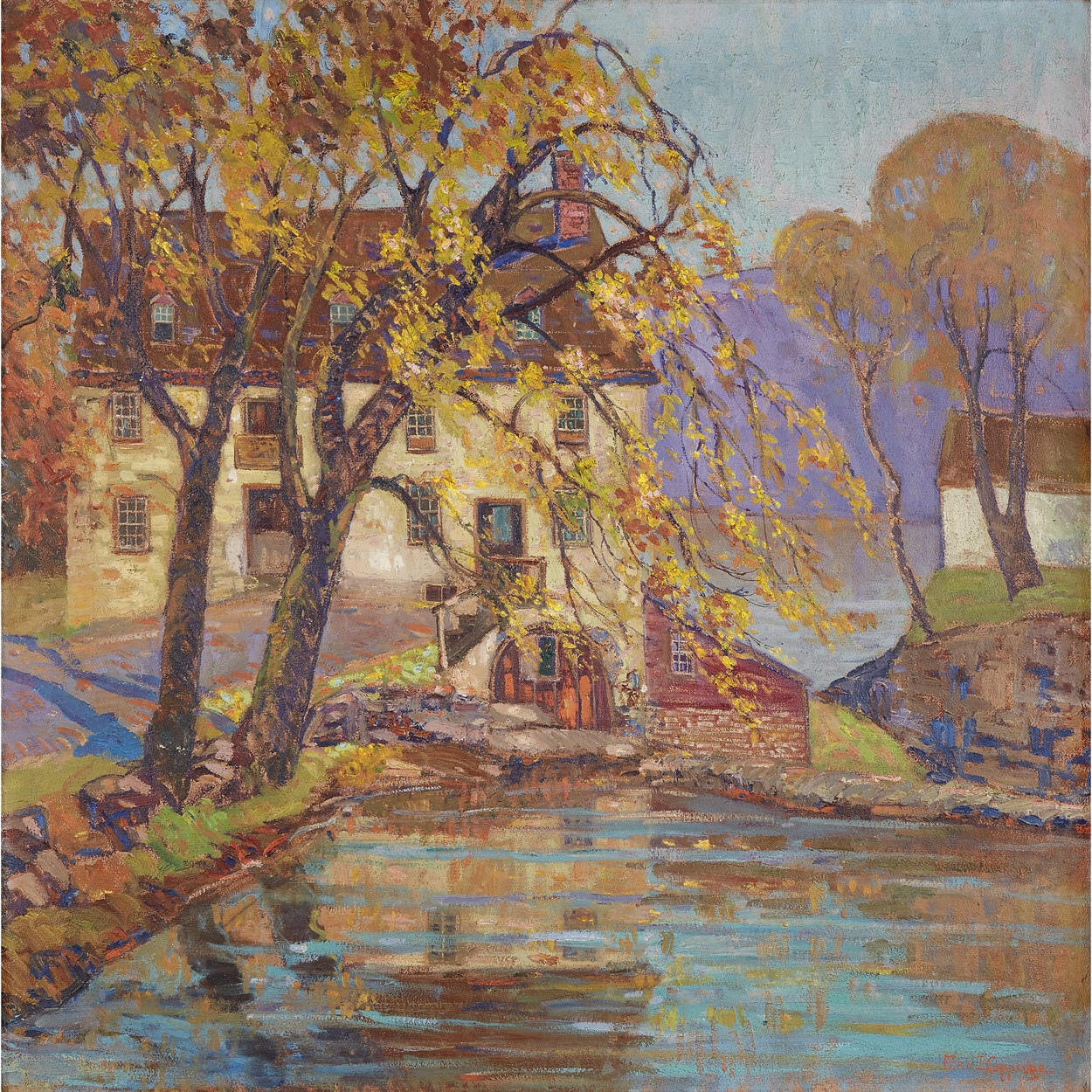June 9, 2019 14:00 EST
American Art & Pennsylvania Impressionists

144
FERN ISABEL COPPEDGE (AMERICAN 1883-1951)
THE OLD GRIST MILL, BUCKS COUNTY
Signed 'Fern I. Coppedge.' bottom right, oil on canvas
30 x 30 in. (76.2 x 76.2cm)
Provenance: Private Collection, Pennsylvania.
Sold for $112,500
Estimated at $50,000 - $80,000
Signed 'Fern I. Coppedge.' bottom right, oil on canvas
30 x 30 in. (76.2 x 76.2cm)
Provenance: Private Collection, Pennsylvania.